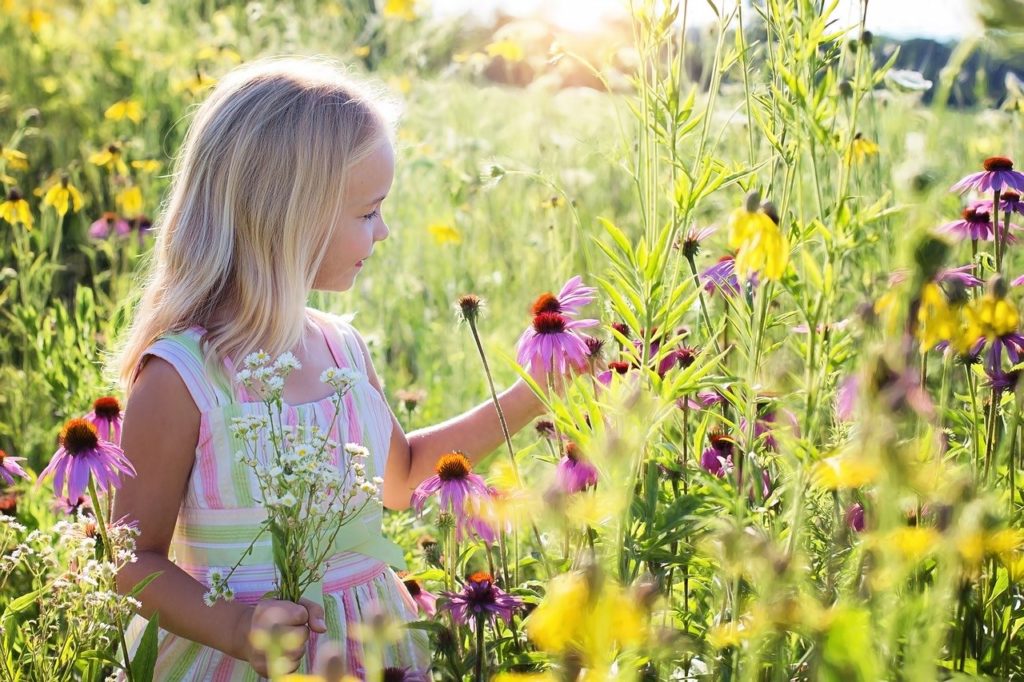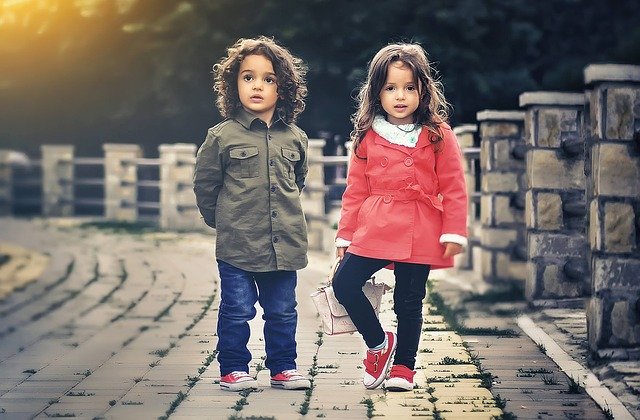If you’re anything like me, your body has changed a bit since you had kids. From a soft, pudgy belly sprinkled with a rainbow of stretch marks, to the slightly misshapen boobs which are nowhere near as high as they used to be. It feels like there’s a lot to be self-conscious about.
But body-consciousness is something that we tend to pass on to our children, having a direct impact on how they feel about themselves. Children as young as three years old are starting to internalise messages about bodies and food, and already can identify ‘fat’ with being a negative thing.
Fortunately, there are plenty of small changes you can make in interacting with your child to help them learn to love their body.

Beauty Comes from the Inside
We often use words like ‘cute’, ‘pretty’ and ‘beautiful’ when complimenting our children, especially our girls. You can help your child to move their concept of worth from what they look like to the person they are inside – try doing this from birth and it will become second-nature by the time your child gets older.
Compliment inner qualities and learned behaviours such as being clever, brave, kind, creative or independent.
This can also extend to complimenting someone’s clothes. You can adjust the way you describe your child’s chosen outfit to say things like, ‘That’s a bright top, what a great shade of blue, it reminds me of the sky,’ or ‘Those pants look so comfortable – I bet you can run and jump easily in those.’
Model Self-Confidence
‘Be kind to yourself, your daughters are listening.’ The sentiment behind this saying can extend to sons too, but means whenever we say disparaging things about ourselves, our children notice.
The way we look at ourselves and talk about our bodies has a direct influence on their own opinions of themselves.
It can be difficult, but try to start saying kind things about yourself when looking in the mirror (or at least begin by not saying anything bad about yourself). Start to notice those times when you refuse to let a friend take your picture because you need to lose weight, or if you ask someone to delete a photo that you didn’t look your best in.
Focus on What Bodies Can Do, Rather Than What They Look Like

Your body is a tool, and an amazing one at that.
Teach your child that a body gives them the ability to live the life they want and follow their dreams, allowing them to think, grow, develop, heal, think, act and react. Their thoughts and actions are what defines their character, not what they look like.
Again, you can model this by the way you talk about yourself. Rather than criticising your body as overweight or in bad shape since having children, talk about how clever it was to grow babies inside it, or how you are perfect for cuddles.
Point out to children how their heart beats and their lungs breathe in and out to magically keep them alive. Talk about how their body digests food, extracting all of the important things that it needs and how the rest comes out as poo.
It also helps to talk about food as fuel rather than good or bad or using it as reward or comfort. Food is used to give the body energy and help it do everything it needs to do in a day. All food is ok in moderation, either as sometimes foods, or as something that can be balanced by exercise.
Help Children to Talk About Their Body
We are all dreading that moment when our child points someone out on the street and loudly declares – ‘Look at that woman Mum, she is so fat!’
Our instinct is to hush our child or tell them off for being rude, but they may not have meant the comment negatively and may’ve just been pointing out what they observed. It’s our response that can put the negative spin on the comment.
Instead, you could respond with, ‘I know, and isn’t it wonderful how we all look so different and special?, ‘Healthy bodies come in all shapes and sizes don’t they?’ or ‘And isn’t her smile lovely?’
From a very young age, we should start to talk to our children about all of the different shapes and sizes of bodies in the world and embrace their diversity. Talk about how every body can magically carry its owner through life and do what’s needed.
Remove the concept that ‘fat’ is negative, not by banning it from conversation but by taking away its power. If your child comes home and says that someone at school called them fat, it’s a natural instinct to respond by saying – ‘No, you’re not!’
Instead, focus on how the comment made them feel and also on their positive qualities that are harder to see and therefore not as easy to comment on.

Help Children to Own and Be Proud of Their Body
Teach your child that their body belongs to them and they have the right to keep it to themselves. It helps to not force kids to hug or kiss relatives when they don’t want to, as this contradicts what we teach them about consent.
Teach your child that everyone has an invisible bubble around them, sort of like a hula hoop, and that you need to respect other people’s bubble, as well as your own. Your child doesn’t need to let anyone into their bubble that they don’t trust, and should give other children space for theirs.
Teach them that their bodies are something to be proud of, and they can let people into their bubble who are trusted and special to them.
Teach them to not be ashamed of their bodies. From a young age, teach them the correct names for their body parts and help them to not be embarrassed about their bodies. Teach them that their body belongs to them, and they can choose what they show or share.
A small child is the one person who will never see the faults or flaws that you see in your own appearance – instead, they will love how you look without exception because you’re their Mum. You’re their favourite thing to look at – there is no one in the world they would rather see than you.
